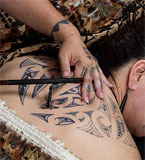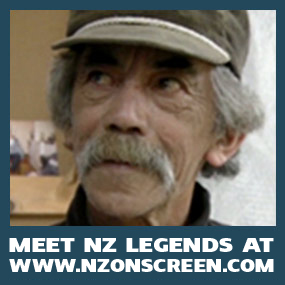Maintaining meaning
Each year, Whakatane ta moko artist Rangi Kipa has some 2 clients fly into the country from the UK or Europe eager to make a statement with a unique Maori tattoo. Kipa says the culture Maori live in has changed and ta moko has to reflect that. “I don’t have a problem with the commercial side, as long as we (Maori) are doing it. I do have an issue with other people overseas doing it,” Kipa says. [The clients] just come because they have seen my work on the web and they want to get something. A lot of times they are looking to an opportunity to make a statement to themselves and mark themselves with something with meaning – not like if you just walk into a tattoo store.” Auckland-based moko artist Inia Taylor, who worked on the film Once Were Warriors, says there is no reason ta moko should be exclusive to Maori as culture becomes more global. “I’m quite happy for moko to be popular culture because I think that’s where it needs to be,” Taylor says. “The first woman I tattooed by hand (using traditional tools) was an 8-year-old who wanted to be as ‘old school’ as possible,” he says. “The whole thing was in memory of her grandmother who wore a moko and she wanted to get as close to that experience as possible.”















